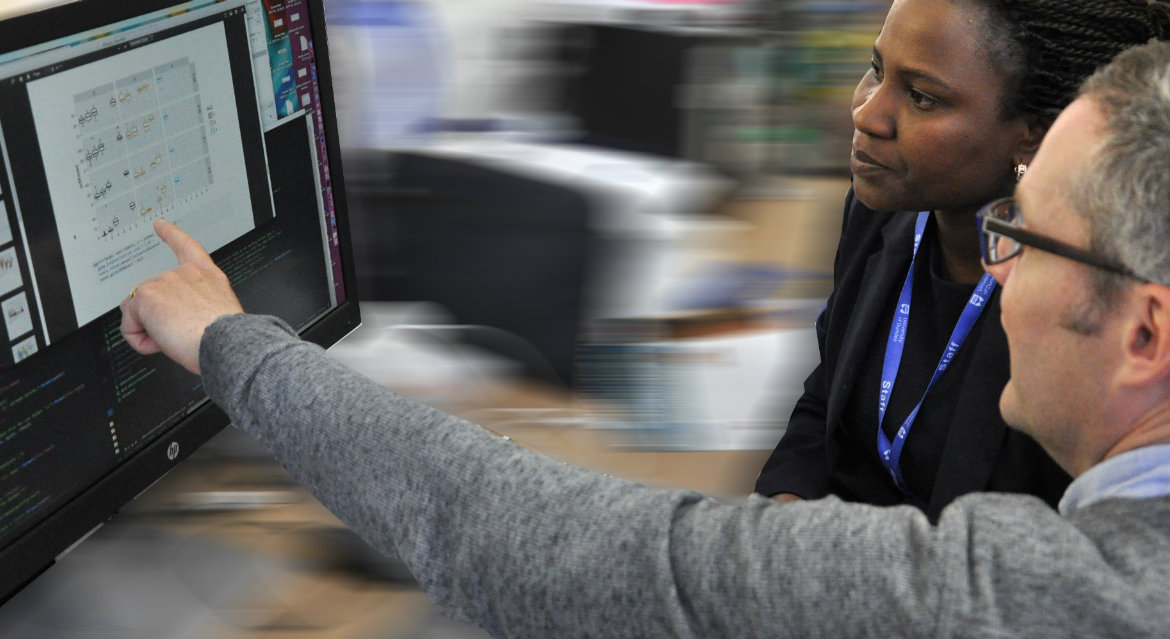Public invited to join ‘hackathon’
Published On Tue 5 Mar 2019 by Grant Hill

Researchers from the University of Dundee are inviting members of the public to help them interpret newly released ballistic and chemical datasets that will ultimately help support a fair and just criminal justice system.
The University’s Leverhulme Research Centre for Forensic Science (LRCFS) will next week issue two important forensic science datasets they have created and are asking the public to come up with new interpretations of them as part of a ‘hackathon’ challenge which will take place between 11–22 March.
A final presentation event at LRCFS on Friday 22 March will allow people to see what has been created as part of the challenge and meet the forensic science research team.
The datasets the Leverhulme team are sharing concern the ballistic analysis of high velocity air pistol pellets and chemical analysis of ignitable liquids from multiple different sources.
The air pistol dataset has thrown up several questions researchers are seeking help to answer, such as whether pellets fired from an air pistol can be differentiated from those fired by an air rifle and whether the data can identify the order in which a random subset of pellets were fired. From the ignitable liquids data they are seeking to find whether individual liquid types and sources can be separated when fresh and then when evaporated.
The hackathon takes place as part of the DataFest19 fringe, a festival of data innovation taking place from 11-22 March across Scotland. Data innovation is affecting all areas of our lives, from personal health to smart transport, shopping to energy efficiency, business to public services and beyond. The theme for the festival is on data-driven innovation, with this year’s programme having a special focus on collaboration.
“High quality forensic science is underpinned by reliable data,” said Dr Christian Cole, who is leading the activity at LRCFS. “We need it, for example, in order to be able to calculate the likelihood of someone's DNA profile matching a crime scene sample rather than the DNA profile of a random person.
“This is a great opportunity for data-savvy people to get their hands on unique, ‘ground truth’ datasets which are the foundation for good Forensic Science research and ensure validity of their application to casework. The participants’ contributions to the hackathon will aid us to interpret this and future datasets in, hopefully, new and exciting ways.”
In 2009, a report by the National Academy of Sciences (NAS) in the United States challenged the scientific credibility of a wide range of forensic evidence types including those which relied on direct physical comparative processes, such as footwear mark comparison. Ten years after that report emerged little has changed and the LRCFS team aim to rectify this in part by empowering citizens to help them gather relevant data.
The Leverhulme Research Centre in Forensic Science is a 10-year, £10million project funded by the Leverhulme Trust and directed by Professor Nic Daeid. Working closely with both Scottish and English judiciaries, forensic scientists and law enforcement, LRCFS’s aim is to improve public and judicial confidence in forensic science. The team is making continuous progress in addressing the issues identified in the 2009 NAS report.
People are welcome to sign up to interpret the datasets, present their work and meet with the LRCFS team on the 22March. LRCFS are also inviting members of the public to attend the final event and see what others have created from the datasets. Places are limited so must be booked in advance, tickets are available here.
For media enquiries contact:
Grant Hill
Press Officer
University of Dundee
Nethergate, Dundee, DD1 4HN
Tel: +44 (0)1382 384768
Mobile: 07854 953277
Email: g.hill@dundee.ac.uk